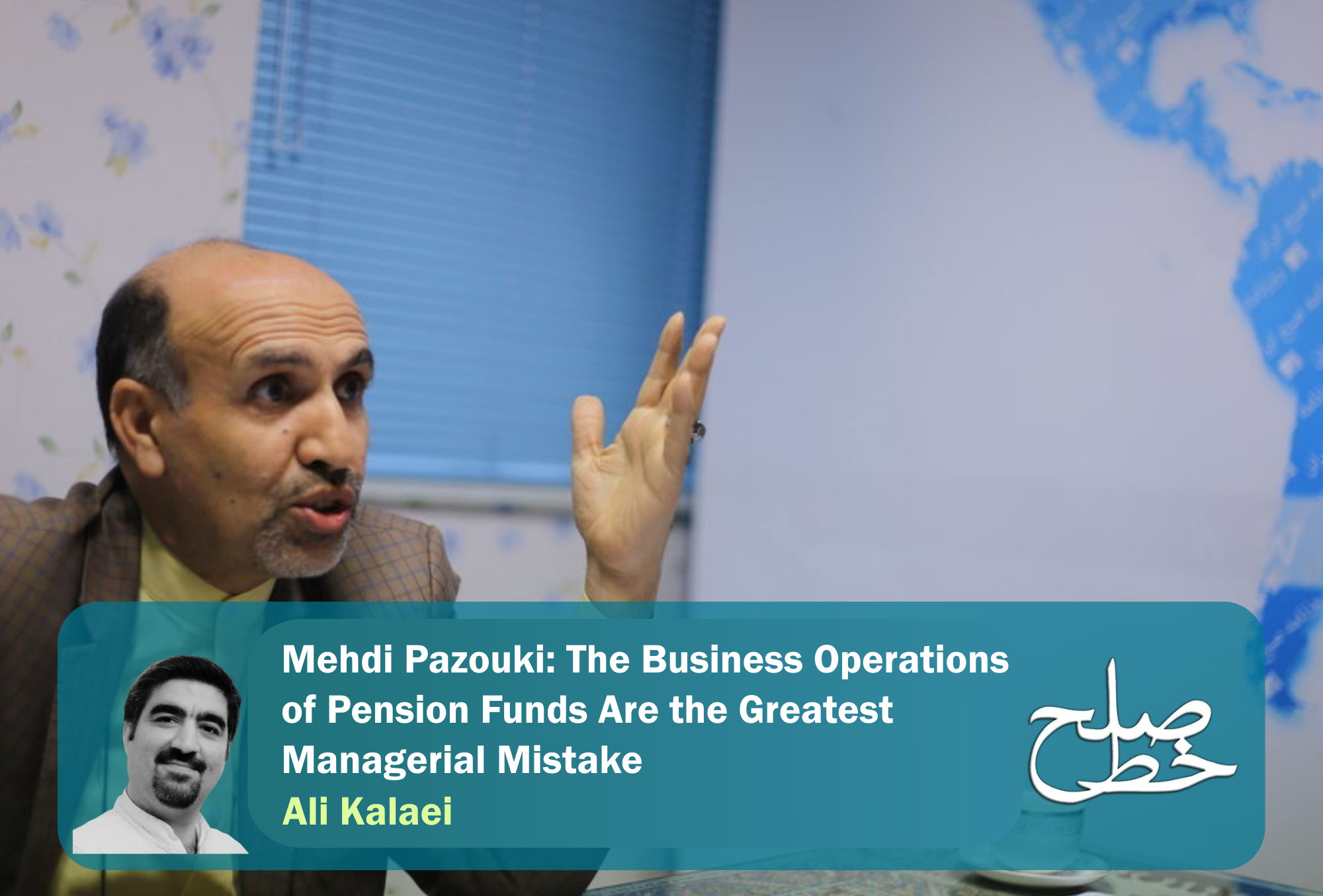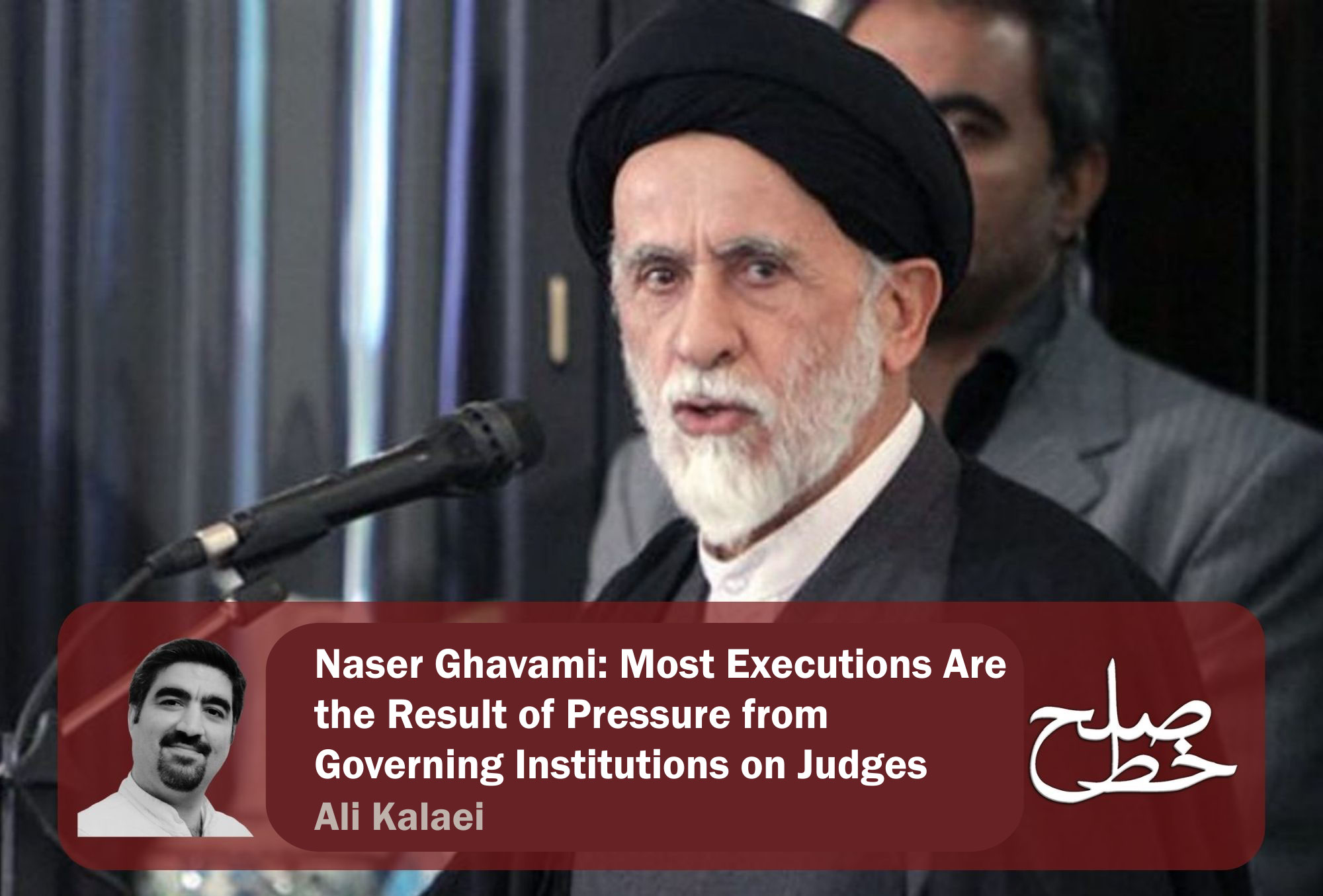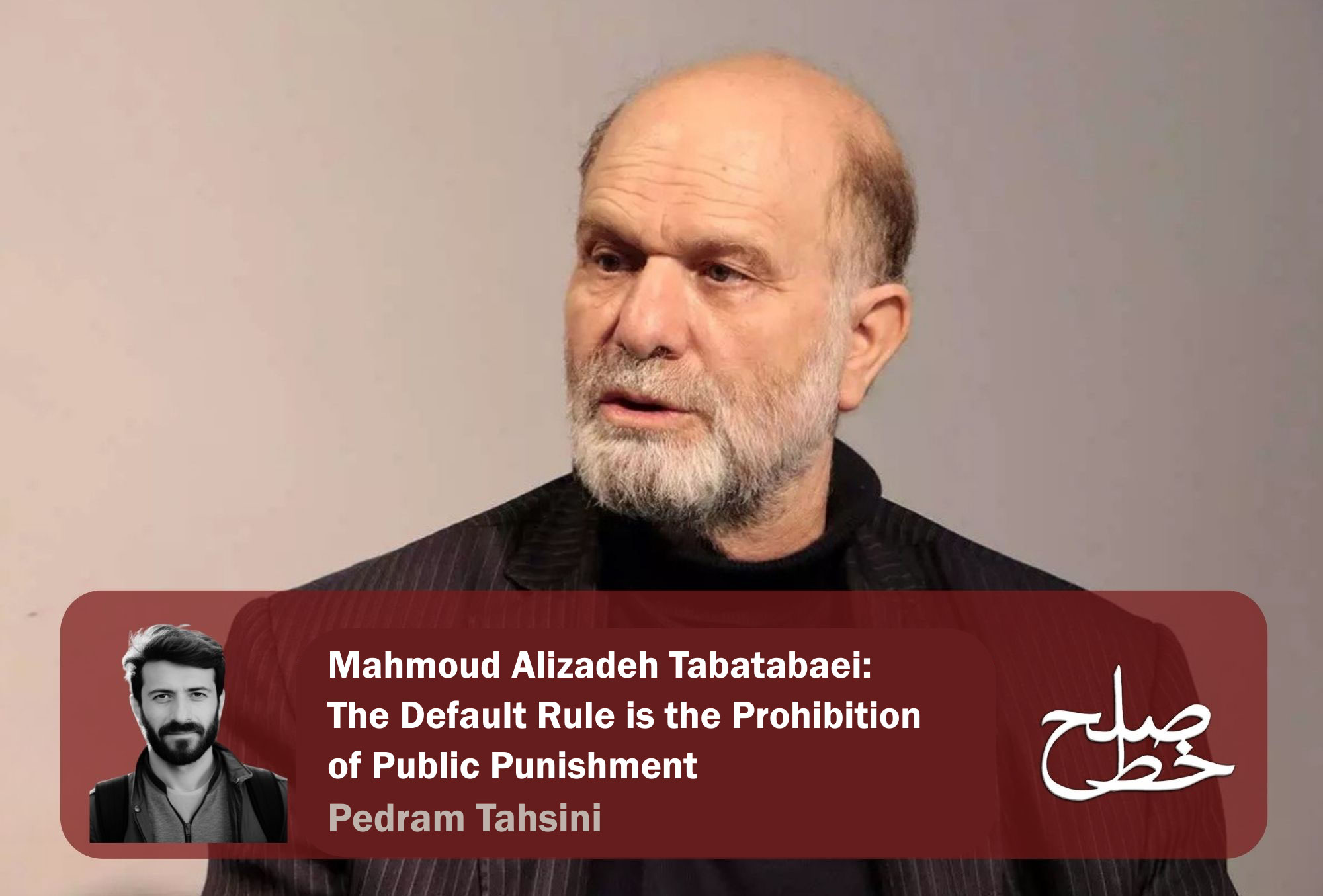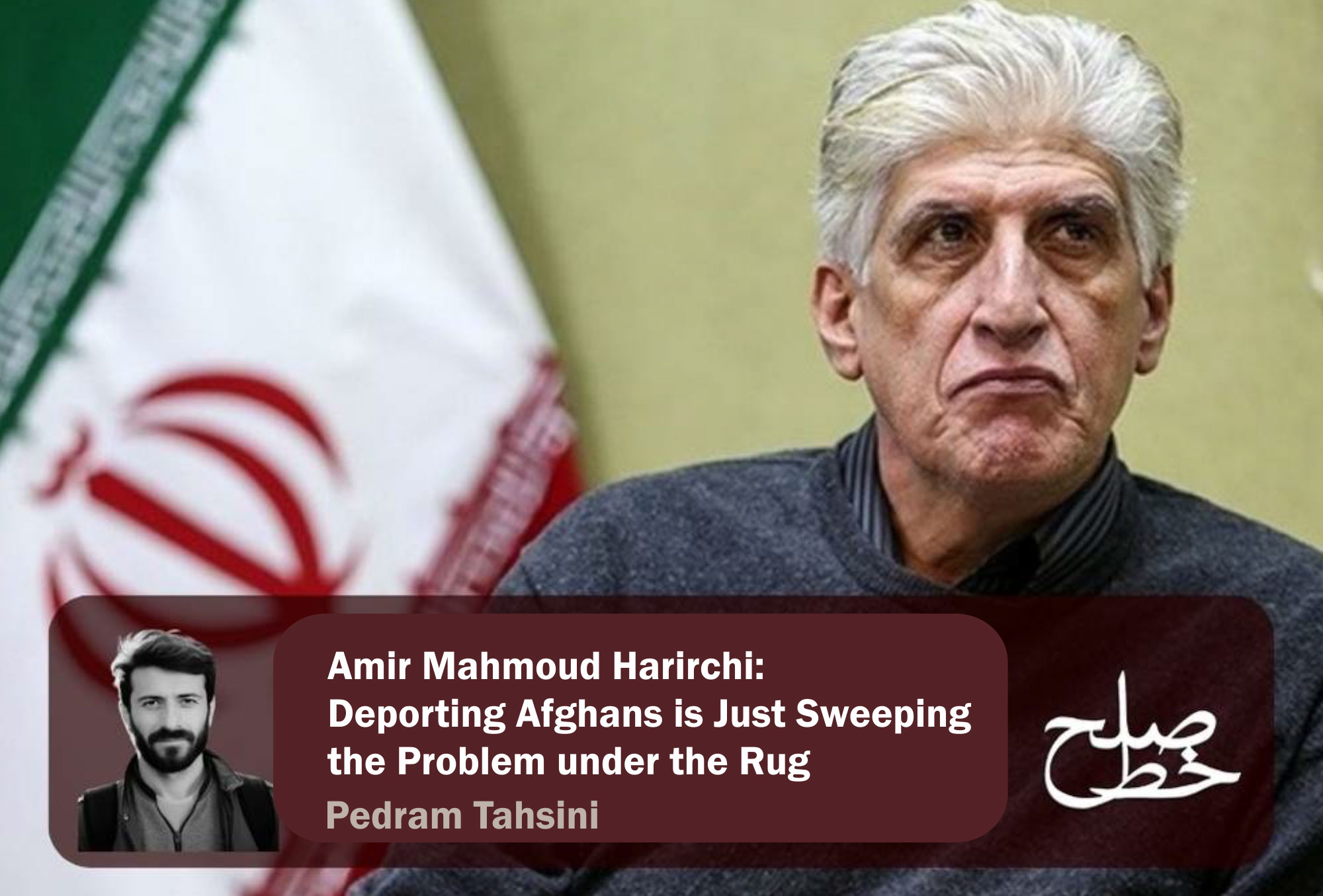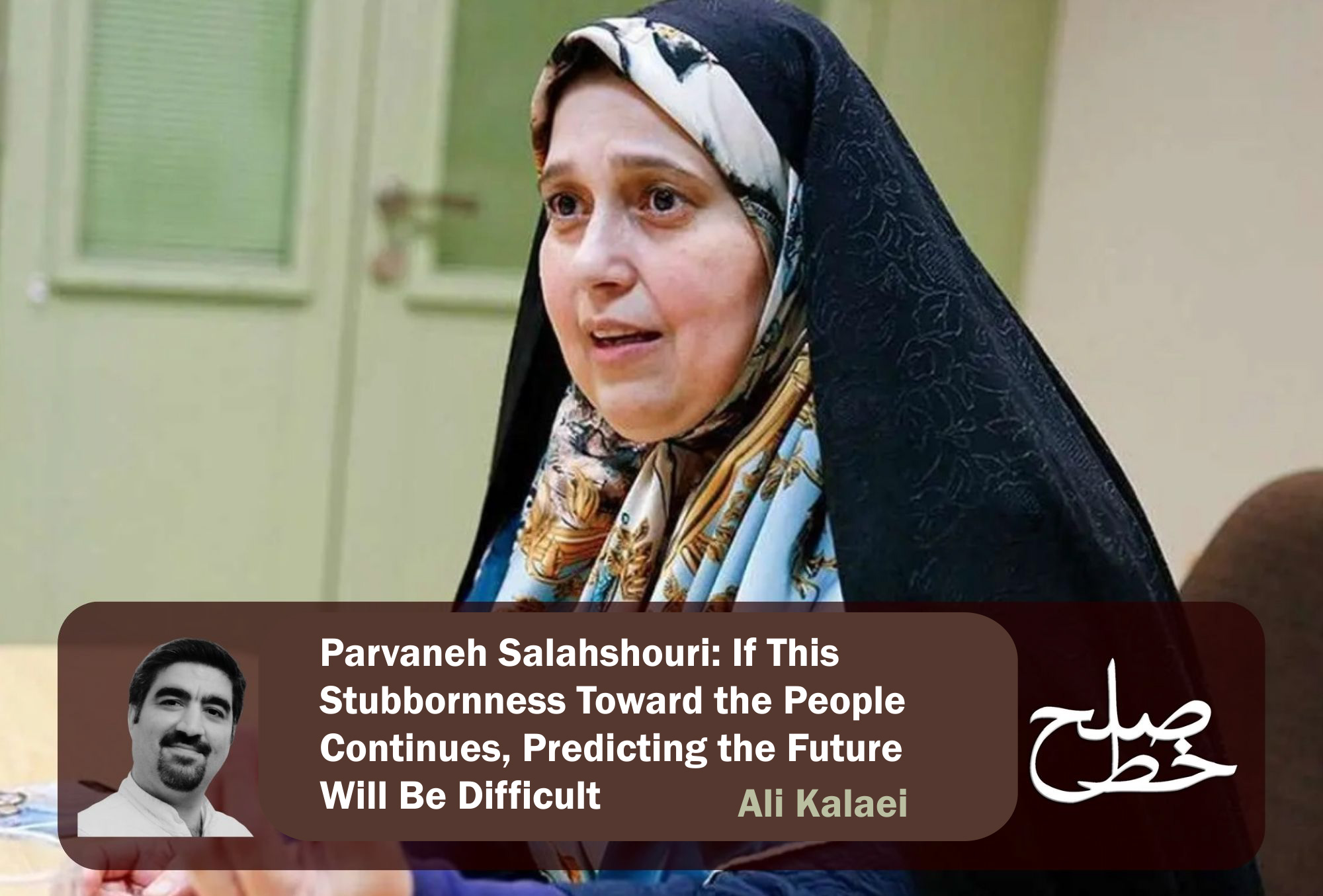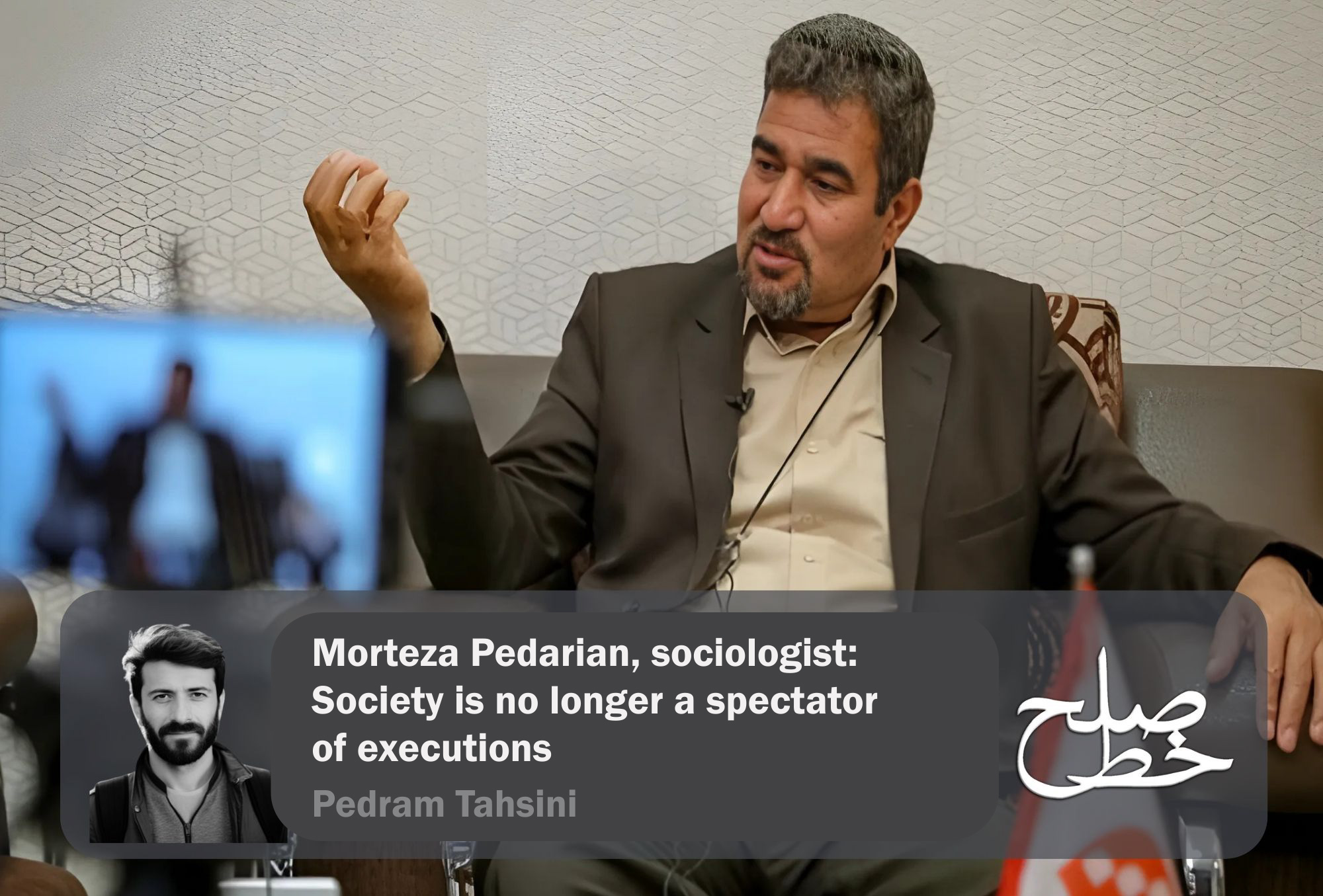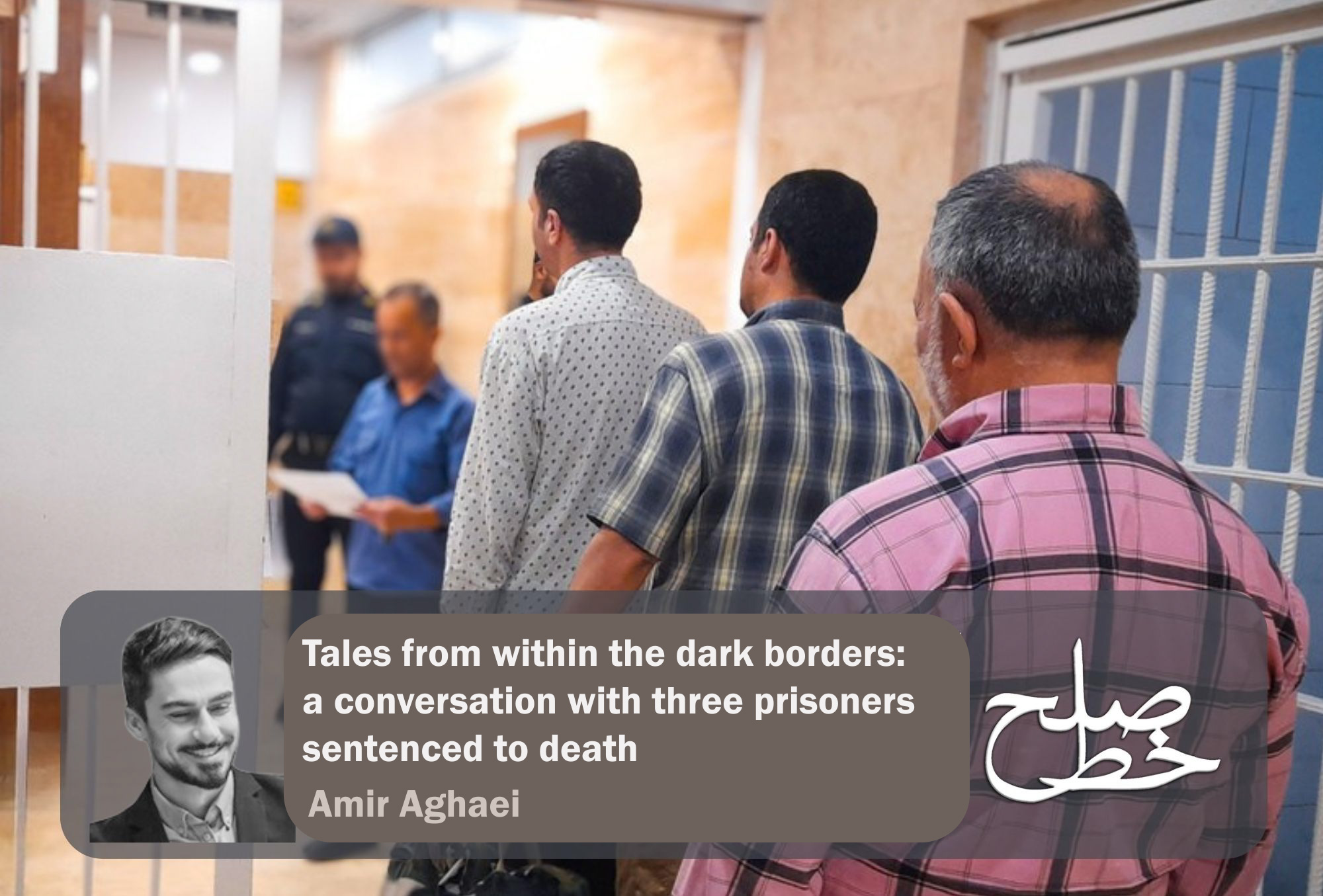HRANA- While signs of bankruptcy among Iran’s pension funds are appearing one after another, and their financial burden increasingly weighs on the national budget each year, the need to discuss the causes and consequences of this situation is more urgent than ever. Peace Mark Monthly Magazine, in this regard, conducted a candid interview with Dr. Mehdi Pazouki, economist and former Director-General of the Center for Economic, Social, and Publication Records of the Budget Organization, who describes himself as an “economic aide-expert.” In this interview, Dr. Pazouki, with a critical perspective, speaks of the bankruptcy of the military, civil service, and even the Social Security funds, viewing the crisis as a result of unscientific decisions, loss-making business operations, and populist approaches in the country’s pension system. He warns that unless structural reforms and adherence to scientific and rational management principles in these funds and the national economy are taken seriously, the current crisis could evolve into a far-reaching threat to Iran’s economy and society.
Below is the full text of Peace Mark Monthly Magazine’s interview with Dr. Mehdi Pazouki:
How do you assess the current state of the country’s pension funds? In your view, are these funds on a sustainable path or on the verge of crisis?
The “military” pension fund is completely bankrupt. That is, if the government fails to pay the retirees’ salaries for just one month, the fund will not be able to continue functioning. Unfortunately, the companies under this fund have also become a backyard for the Ministry of Defense. This means that in the current situation, the government pays all the military retirees’ salaries each month. In my opinion, if the law permits, this fund should be sold off quickly and its proceeds deposited into the national treasury to at least add some liquidity and reduce the government’s budget deficit. The government also covers 80 percent of the Civil Servants Pension Fund’s financial needs, meaning that all of this fund’s companies together cover only 20 percent of its expenses. The Social Security Organization, too, has become extremely wasteful over the past couple of years. Right now, the pensions of state employees retired under Social Security are far higher than those under the Civil Servants Fund, and this will cause a crisis. For example, this year the pensions of Civil Servants Fund retirees rose by 20 percent, while those of Social Security retirees increased by 32 percent plus 920,000 tomans—that is, about 35 percent overall. This shows that the Social Security Organization has fallen into wastefulness, meaning that in the not-too-distant future, it too will face a crisis and will require its own budget allocation, just like the military fund. The cause of this is management that, instead of adopting a rational and scientific approach, follows populist policies.
One of the problems with these funds is that they do not operate under a scientific system. For instance, many people are now filing claims for their fathers’ pensions by staging fake divorces. This problem is increasing alarmingly in both the military and civil service pension funds. The solution is for Parliament to pass a law stipulating that those who divorce after the law’s enactment should only receive one-third of their fathers’ pensions, so they are not encouraged to divorce.
You mentioned the funds’ dependence on the national budget. What are the implications of this for their independence and financial integrity?
Our pension funds should learn from those in developed countries such as the UK or Japan. Currently, Social Security has made a very foolish move by implementing “equalization.” Consider two employees in the same organization, retiring with the same experience and education. While they earned the same salaries during employment, the one under Social Security now receives ten million tomans more in pension. This creates inequality. We need to fix our economy and control inflation. But now Social Security, with a table as complicated as Mendeleev’s periodic table called “equalization,” has given everyone a raise. A retiree’s pension should be 90 percent of an active worker’s salary, not 110 percent. Social Security’s populist actions are creating crises for the pension system.
When people say the pension funds are “bankrupt,” what exactly does that mean?
These funds have been bankrupt for a long time. The government keeps them afloat by injecting money. That’s what it means. Currently, the Social Security Organization too, due to reckless policies, is on the path to bankruptcy, and I am deeply worried about that.
In this situation, what are the indicators of such bankruptcy, in your opinion?
This bankruptcy means that the government’s money—which should be spent on building roads, airports, and economic infrastructure—is instead paid out to retirees. If Social Security also falls into crisis in the coming years, the situation will become far worse. Nowhere in the world is “free money” given to people. Take the Martyrs Foundation, for example: its budget should be reduced, but due to the rising number of divorces, its funding has actually increased. We are running this country expensively and must adopt scientific, expert-based approaches and learn from global experience. The clergy lack the capacity and have ruined the country. Jokingly, I’d say we should lease the country to the Japanese for ten years to see how they manage a pension system. In developed countries, no one gets money for free. Let me give an example: in one case, a 75-year-old woman divorced her husband just to receive her mother’s pension, the mother was a retired nurse. The individual isn’t to blame; it’s our faulty pension and social security system.
Given this situation, how do you evaluate the role of retiree associations in decision-making and oversight of the funds?
Nothing at all. These associations are like small shops where retirees gather for socializing. As far as I know, they have no role in the decision-making processes of the funds. They function more like NGOs defending retirees’ rights within their respective ministries, securing welfare benefits, healthcare insurance, and the like.
Since you believe they play no real role, should these associations be strengthened to have greater influence in fund governance?
Look, the government must design a system. These groups can’t do anything. At most, they can collect retirees’ documents or keep addresses to send condolence flowers when someone passes away. That’s the extent of their work. But can they influence pension system strategy? No, they cannot. Show me one country in the world where a person receives two pensions. For example, if I die, my wife—who is a teacher—will receive both her own pension and mine. Associations are good for bringing retirees together or organizing trips, but the issue at hand is the country’s development strategy, including the pension and social security system. Read the Constitution: we’ve even fallen behind that. These associations are not responsible for national development. The government, when short of money, simply prints it, which means budget deficits, liquidity growth, and inflation—and that’s exactly what’s happening now.
We must fix Iran’s economy. We must control inflation and restore economic stability. That’s the government’s duty. What can retirees or their associations do to stabilize the economy? In a stable economic situation, even without wage increases, retirees would be better off. The key is stability. Retirees’ living standards in the 1990s were far better than today, even though their nominal income was perhaps one-tenth of current pensions—their purchasing power was higher. So, we must demand that the government curb wasteful spending. But instead, we are increasing it. My point is that when wages are set to rise by 20 percent, why should Social Security increase pensions by 35 percent? That’s flawed policy—it creates inequality and loss. At this rate, soon the government itself will have to pay all those funds’ expenses.
Aside from the executive branch, we also have the legislative branch. In your view, how will the “Retirement Age and Service Amendment” approved for 2025 affect the financial sustainability and obligations of the funds?
Such legislation is good. In my opinion, no one under 60 should retire unless they’re disabled, for example due to an accident. But the issue now is that they’ve created a table as complex as Mendeleev’s. In developed countries like the UK and Japan, no one retires before 60 or 65. Yet in Iran, they’ve made numerous Social Security rules that create huge costs—this is disastrous. Some people retire with only ten years of service. That’s unacceptable. Regarding the specific amendment you mentioned, I don’t have detailed information. But I oppose anything that increases fund expenses. The system must be transparent. When someone dies, their record should be removed from the system. There are even people living abroad still collecting pensions. These funds are flawed.
One controversial issue is the business and economic activity of pension funds.
I am strongly opposed to these business operations. In my opinion, if the Social Security Organization were to sell all its assets and deposit the money in its own Bank Refah, the interest earned would exceed the profits from these enterprises. I am completely against pension funds engaging in business activity. These enterprises are loss-making.
And how do such business operations affect the performance and financial health of the funds?
Just read the discussions during the impeachment of Mr. Ali Rabiei, the Minister of Labor in Mr. Rouhani’s government. One of the things he himself revealed was that someone wanted the board of directors of one of these companies to include a relative of a member of parliament. That’s no way to run a business.
Given that the generation born in the 1980s is now entering middle age, how do you foresee the future of this generation within Iran’s pension system?
Look, the problem in Iran lies in the system of these funds and the concept of retirement itself. We must make these funds efficient. Right now, they are bankrupt and funded by the government. The issue is that both the revenue and expenditure sides must be reformed. For that, we need to learn from global pension models. We must move toward welfare economics and social security systems. In Sweden, for example, from the moment a person is born until the moment they die, if their income exceeds a legal threshold, they pay taxes, and if it falls below that threshold, they receive support. This is a kind of “social democracy.” In such countries, no one gets free money. The structure and regulations of pension funds in Iran must be reformed. Today there are funds that pay two pensions to one person—that’s a flaw, in my view.
Can private sector involvement in retirement services and supplementary insurance help sustain the system, or will it create new problems?
I have no issue with that. We must implement “structural reforms” across all areas of these funds. Right now, we’re like a spoiled rich kid whose income has dropped but who still overspends. Financial and monetary discipline must be enforced in these funds.
You talk about the need for structural reform. But factors such as demographic changes, poor insurance policies, government debt, or managerial inefficiency are also cited.
I consider all of these part of the problem—ineffective laws and regulations, unscientific management of these enterprises and funds, and the general lack of accountability. We’ve failed to approach the issue scientifically and professionally. Our method is flawed. Laws and regulations must safeguard the national interests of the Iranian people. We must strive to make rational, evidence-based decisions. Both our laws and executive systems are flawed. You asked about business operations: even the government itself faces problems running its state-owned enterprises and is seeking to privatize them. With these same practices, the pension funds have become the backyards of executive institutions.
What governance reforms do you consider necessary for the pension funds?
Structural reform is essential. First, they must not engage in business operations under any circumstances. Laws and regulations should be drafted based on expert studies, not made haphazardly. Decisions should be guided by research and global experience to optimize fund performance. This requires learning from human experience to manage these funds more effectively.
Thank you for taking the time to speak with Peace Mark Monthly Magazine.
Originally published in Khat-e Solh (Peace Mark) monthly magazine on October 23, 2025.



